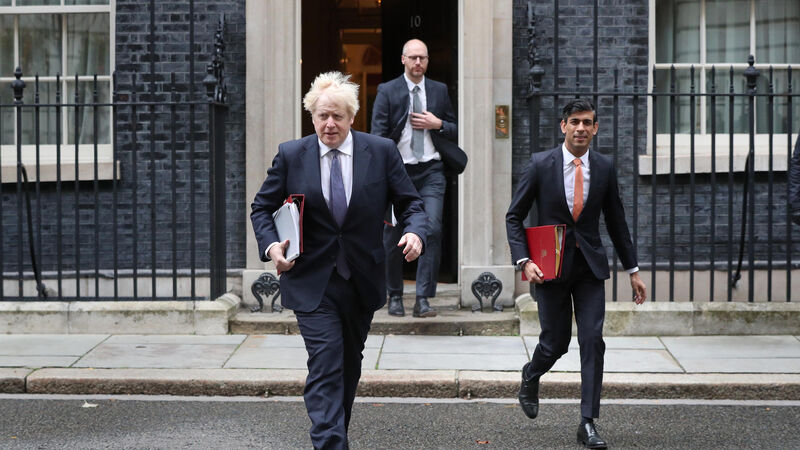OECD: UK outlook 'exceptionally uncertain' on Covid-19 and Brexit

Prime Minister Boris Johnson (left) and Chancellor of the Exchequer Rishi Sunak (right) leave 10 Downing Street London, ahead of a Cabinet meeting at the Foreign and Commonwealth Office.
The British economy is facing a slow recovery from the Covid-19 economic storm which will keep unemployment at an elevated level, but low borrowing costs mean it could inject more stimulus if required, according to the OECD.
Unemployment will rise to over 7% in 2021, and will remain at an elevated level for "several years", the Organisation for Economic Co-operation and Development said in its latest economic survey.














